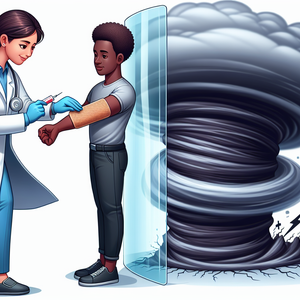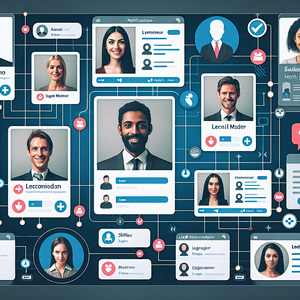
Future-Proof Careers: Top Emerging Roles and Essential Skills to Thrive in 2030 and Beyond
The world of work is transforming at an unprecedented pace, shaped by rapid technological innovation, shifting societal values, and unpredictable global challenges. By 2030, nearly 40% of today’s skills will have evolved, as reported by leading workforce studies. This shift signals a critical need for continuous learning, adaptability, and a balance between technical expertise and human-centric skills.
Job Summaries:
Digital Transformation Specialist:
- As digitalization accelerates, industries need professionals who can seamlessly integrate technologies like AI, cloud computing, and automation into business operations.
- Digital Transformation Specialists drive these efforts, requiring a strong foundation in IT, analytical thinking, and adaptability.
- Certifications in cloud platforms (e.g., AWS, Azure) and agile methodologies can provide a competitive edge.
Learning and Development Manager:
- Learning and Development Managers design and implement training programs that foster adaptability and lifelong learning.
- Success in this role requires excellent communication, organizational skills, and expertise in HR or adult education.
- Certifications like the Certified Professional in Learning and Performance (CPLP) can be beneficial.
Soft Skills Coach:
- Soft Skills Coaches enhance creativity, collaboration, and resilience through personalized coaching and workshops.
- A background in psychology, human resources, or coaching certifications like the International Coaching Federation (ICF) credential is essential.
Resilience and Stress Management Consultant:
- Resilience Consultants create stress-reduction strategies and wellness programs to boost productivity and adaptability.
- This career path benefits from a background in psychology or counseling, as well as certifications in mindfulness or stress management techniques.
Agile Project Manager:
- Agile Project Managers play a crucial role in navigating uncertainty while ensuring projects meet evolving requirements.
- Certifications like Scrum Master or PMI-ACP (Agile Certified Practitioner) are highly valuable.
Emotional Intelligence Trainer:
- EI Trainers develop workshops and coaching sessions to improve empathy, communication, and self-awareness.
- A psychology or HR background, coupled with certifications in emotional intelligence, can help you thrive in this role.
Data Literacy Specialist:
- Data Literacy Specialists bridge the gap between technical experts and non-technical employees.
- They teach teams how to interpret and leverage data for decision-making, fostering a data-informed culture.
- Certifications like Google Data Analytics or Tableau Desktop Specialist are valuable.
Chief Remote Work Officer:
- Chief Remote Work Officers ensure smooth operations in distributed teams by implementing collaboration tools.
- They foster engagement within the teams.
- They develop remote work policies.
- Knowledge of remote technologies is essential.
- Understanding HR practices is crucial.
- Strong leadership skills are necessary.
Creative Problem-Solving Facilitator:
- Creative Problem-Solving Facilitators guide teams through brainstorming sessions and workshops.
- They leverage design thinking to develop innovative solutions.
- A strong understanding of design methodologies is essential.
- Facilitation skills are essential.
Adaptability Trainer:
- Adaptability Trainers create programs that help individuals build resilience and navigate evolving workplaces.
- A background in corporate training, psychology, or coaching provides a strong foundation for this role.
HR Analytics Specialist:
- HR Analytics Specialists analyze workforce data to predict hiring needs, improve retention, and enhance employee satisfaction.
- This role demands a blend of data analysis skills and HR expertise.
- Certifications like People Analytics (offered by Wharton Online) can help.
Future Workforce Strategist:
- Future Workforce Strategists analyze emerging technologies and societal shifts to predict skill gaps and design reskilling strategies.
- This role requires strategic thinking, trend analysis, and expertise in workforce development.
AI Ethics Officer:
- AI Ethics Officers develop frameworks to ensure responsible AI use, addressing issues like bias and accountability.
- A background in computer science, ethics, or law is critical, along with a passion for ethical innovation.
Lifelong Learning Consultant:
- Lifelong Learning Consultants design personalized education plans for individuals or organizations.
- A background in education, career coaching, or instructional design is ideal for this role.
Cybersecurity Awareness Trainer:
- Cybersecurity Awareness Trainers educate teams on best practices for digital safety.
- Certifications like CompTIA Security+ or Certified Ethical Hacker (CEH) are valuable for this field.
Human-Centered Design Specialist:
- Human-Centered Design Specialists focus on empathy and creativity to improve user experiences.
- A background in design, psychology, or user experience (UX) is crucial for this role.
Sustainability Officer:
- Sustainability Officers help organizations implement eco-friendly practices and align with environmental goals.
- A background in environmental science or sustainable business practices is essential.
Digital Wellness Coach:
- Digital Wellness Coaches help individuals achieve healthier relationships with technology.
- They design strategies to reduce tech-induced stress and foster well-being.
- A background in psychology, health coaching, or wellness is key for this role.
Innovation Manager:
- Innovation Managers develop new products, services, and processes that drive growth.
- Strong leadership skills paired with expertise in business or engineering are critical for this role.
Cross-Cultural Communication Trainer:
- Cross-Cultural Communication Trainers help teams build cultural awareness and improve international collaboration.
- A background in communication, anthropology, or international business is ideal.
The future of work isn’t just about keeping up with technology—it’s about cultivating the human qualities and skills that technology cannot replace. The 20 roles outlined above underscore the importance of adaptability, resilience, creativity, and emotional intelligence in navigating the challenges and opportunities of 2030 and beyond. Embrace lifelong learning and seek out certifications, courses, or experiences that enhance both technical and soft skills to ensure success in this dynamic landscape.
Explore More Jobs

